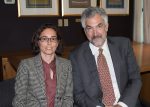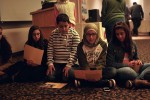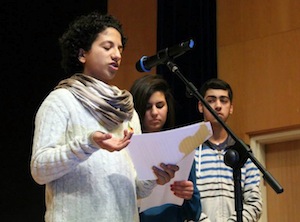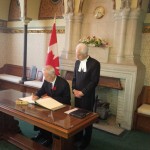The Canadian government has announced that it will resume funding the United Nations Relief and Works Agency for Palestine Refugees in the Near East (UNRWA). The government made the announcement last week, allocating $20 million to UNRWA’s budget and an additional $5 million to support the emergency appeal issued by the organization in order to aid Palestinian refugees affected by the catastrophic war in Syria.
In a statement, the government said, “with this funding, Canada joins all other G7 countries in supporting UNRWA’s efforts to meet the ever-increasing needs of Palestinian refugees, assists in providing basic services for vulnerable people, and contributes to some stability in the region.”
Canada’s previous Conservative government backed away from supporting UNRWA, reducing funding from $32 million in 2007 to $19 million in 2009 and, in 2010, cutting funding entirely. The justification at that time was that UNRWA has ties to the terrorist group Hamas, which controls the Gaza Strip.
The $20 million just announced is expected to support health, social services and education “for millions of vulnerable Palestinian refugees,” according to Ottawa. But the announcement comes just days after renewed reports that raise concerns about the more than 200 Palestinian schools sponsored by UNRWA, which teach students between first and ninth grade.
One expert on the subject told a conference organized by the Centre for Near East Policy Research (CNEPR) this month that the textbooks reflect the educational principles introduced by Yasser Arafat when the Palestinian authority gained control over the education system in the West Bank and Gaza, and have not been cleansed of hate, antisemitism and incitement. Participants in the conference obtained textbooks from the warehouse that supplies Palestinian schools and they claim the books still encourage a violent struggle for the liberation of “Palestine,” which is defined to include all of present-day Israel, the rejection of historical facts about Jewish holy places and the demonization of both Israel and of Jews.
A spokesperson for UNRWA outright rejects the accusations, saying that two significant analyses of textbooks, including one by the U.S. Department of State, debunked the assertions of incitement in the curriculum. However, David Bedein, director of CNEPR, said he was prepared to present the U.S. government with evidence that contradicts the state department’s findings but told the Jerusalem Post he was rebuffed by the White House.
These conflicting reports are disconcerting. It should be possible for funders who send hundreds of millions of aid dollars to find out for sure whether their money is funding genocidal incitement. The Centre for Israel and Jewish Affairs is certainly correct in declaring that donor countries “have a responsibility to ensure that aid is used for the purpose for which it is given, and we are pleased Canada has taken the lead in establishing a robust accountability protocol.”
In announcing the renewed funding, the federal government promised “there will be enhanced due diligence applied to UNRWA funding … accompanied by a very robust oversight and reporting framework, which includes regular site visits and strong antiterrorism provisions.”
This would be a positive step, to say the least. It would also be a positive step if these Canadian funds do actually provide health, education and social services to people who need them. But this, too, will be difficult to discern. The Wall Street Journal reported earlier this year that an analysis by Israel’s Ministry of Foreign Affairs indicates that the Palestinian Authority budgets about $75 million a year to support Palestinian terrorists – about 16% of foreign donations the PA receives. A lack of transparency about where the rest of the money goes means the world has been unable to determine how much money is lining the pockets of cronies of the dictatorship and what proportion is making positive social and economic contributions in the lives of Palestinians. Notably, the Palestinians receive more international aid per capita than any other people in the world – by far. Even as the catastrophe in neighboring Syria has seen 250,000 killed and 6.5 million refugees displaced, Syrians receive $106 per capita in international aid, while Palestinians receive $176.
One could argue whether Canadian funds are needed by the Palestinian Authority at all. And, clearly, we cannot be entirely confident that funds are going to the places they are intended. But, if the Canadian government does indeed follow the money, as promised, and determines whether it is making life better for Palestinians or is instead inciting terrorism, this might finally answer some questions that today seem subject to accusations and denials. That would be money well spent.

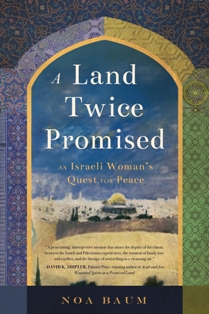 As recounted in her 2016 debut work A Land Twice Promised: An Israeli Woman’s Quest for Peace, Baum grew up with both a deep love of Israel and a keen sense of Jewish vulnerability and the wounds of the Holocaust. The narrative she grew up with about Israel centred on the heroism of its citizen army (“our boys,” she repeatedly calls them) standing up to the bewildering, relentless hatred of the Arab countries. She was deeply shaped by the experience of living through the 1967 Six Day War and the 1973 Yom Kippur War as a child.
As recounted in her 2016 debut work A Land Twice Promised: An Israeli Woman’s Quest for Peace, Baum grew up with both a deep love of Israel and a keen sense of Jewish vulnerability and the wounds of the Holocaust. The narrative she grew up with about Israel centred on the heroism of its citizen army (“our boys,” she repeatedly calls them) standing up to the bewildering, relentless hatred of the Arab countries. She was deeply shaped by the experience of living through the 1967 Six Day War and the 1973 Yom Kippur War as a child.
